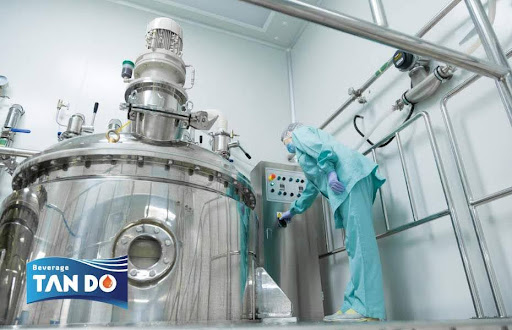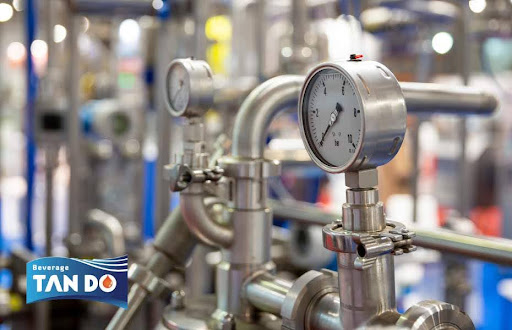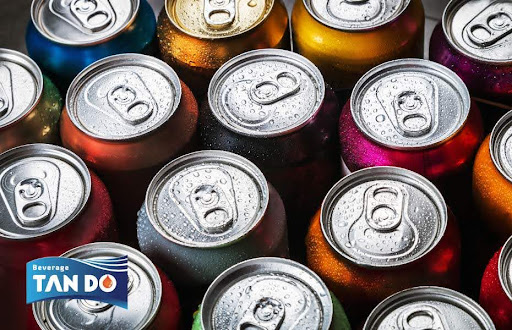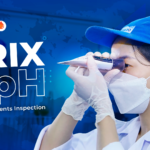As the beverage industry continues to expand, ensuring product safety and quality remains a top priority for entrepreneurs. One effective method for achieving this is tunnel pasteurization. This guide provides an in-depth look at tunnel pasteurization, its benefits, the process itself, and considerations for implementation.


What is Tunnel Pasteurization?
Tunnel pasteurization is a continuous process used to sterilize food and beverages. It involves passing products through a heated tunnel, where they are exposed to high temperatures for a specific duration to kill harmful microorganisms. This method is commonly used in the food and beverage industry to ensure product safety and extend shelf life.
In contrast, cold pasteurization employs filtered water at extreme pressure to destroy and deactivate harmful food-borne bacteria and spoilage organisms.
Tunnel pasteurization can influence beverage flavor in numerous ways:
- Flavor Consistency: Tunnel pasteurization maintains precise temperature control, ensuring that each beverage batch tastes the same, delivering consistency.
- Minimal Flavor Alteration: The progressive heating and cooling process helps preserve the beverage’s original flavors, preventing substantial modifications.
- Carbonation Preservation: It is especially helpful for carbonated beverages since it avoids over-carbonation and retains the desired fizziness.
- Preventing Spoilage: By eliminating spoilage-causing microbes, it ensures that the beverage does not develop off-flavors over time.
However, beverage makers frequently modify recipes to accommodate these changes, ensuring the finished product stays appealing to customers.
What Is The Process of Tunnel Pasteurization?
The tunnel pasteurization process typically consists of three stages:
Heating stage
Products enter the tunnel and are gradually heated to the desired pasteurization temperature. The temperature is carefully controlled to ensure effective microbial inactivation without compromising product quality.
Holding phase
Once the desired temperature is reached, the products are held at that temperature for a specific holding time to ensure complete pasteurization. The holding time varies depending on the product type and the target level of microbial reduction.
Rapid Cooling Process
After the holding phase, the products are rapidly cooled to prevent overcooking and preserve product quality. Efficient cooling systems are essential to maintain the integrity of the product and minimize energy consumption.


Key Parameters
Though the particular beverage product determines the settings, some important information utilized in tunnel pasteurization is:
- Temperature: Typically ranges from 140°F to 160°F (60°C to 71°C).
- Time: Duration depends on the beverage type, usually between 15 and 30 minutes.
- Pasteurization Units (PUs): A measurement of the heat treatment a product receives. Adequate pasteurization is achieved when the target PUs are reached.
Why Beverage Entrepreneurs Should Consider Tunnel Pasteurization
Tunnel pasteurization is a method that beverage entrepreneurs should seriously consider for several reasons.
- Efficiency: Tunnel pasteurization is a continuous process, allowing for high production rates and improved throughput.
- Product Quality: By carefully controlling temperature and holding time, tunnel pasteurization helps preserve the sensory attributes and nutritional value of beverages.
- Safety: Tunnel pasteurization effectively eliminates harmful microorganisms, ensuring the safety of products for consumers.
- Shelf Life Extension: Pasteurized products have a longer shelf life, reducing the risk of spoilage and waste.
- Cost-Effectiveness: While the initial investment in tunnel pasteurization equipment can be significant, the long-term benefits in terms of efficiency and product quality can make it a worthwhile investment.
Factors to Consider When Choosing Tunnel Pasteurization
When choosing tunnel pasteurization for your beverage production, several key factors should be considered to ensure it meets your needs effectively.
- Product Type: The specific characteristics of the beverage, such as viscosity, acidity, and packaging, will influence the pasteurization parameters.
- Production Volume: The expected production volume will help determine the appropriate size and capacity of the tunnel pasteurization equipment.
- Regulatory Requirements: Adherence to local food safety regulations is essential when implementing tunnel pasteurization.
- Cost-Benefit Analysis: Evaluating the initial investment, operating costs, and potential benefits of tunnel pasteurization is crucial for making an informed decision.
By carefully considering these factors, you can select a tunnel pasteurizer that enhances your production efficiency, maintains product quality, and supports your business growth.
Which beverage products need Tunnel Pasteurization?
The preferred technique for many beverage manufacturers is tunnel pasteurization. The following beverage products benefit most from its ability to improve flavor and eliminate spoiling agents.
Juices
Pasteurization is a crucial process in the juice industry to ensure product safety and extend shelf life. It involves heating the juice to a specific temperature for a designated time to kill harmful microorganisms. Here are some of the key benefits of pasteurization for juices:
- Microbial Safety: Tunnel pasteurization effectively kills harmful microorganisms, such as bacteria, yeasts, and molds, ensuring the juice is safe to consume
- Extended Shelf Life: By eliminating spoilage organisms, this process extends the shelf life of fruit juices, allowing them to stay fresh and safe for longer periods.
- Flavor Preservation: While some heat-sensitive flavors might be slightly altered, tunnel pasteurization generally helps preserve the natural taste of the juice by preventing fermentation and spoilage.
- Nutrient Retention: Although some nutrients, like vitamin C, may degrade slightly, the controlled heating process helps retain most of the juice’s nutritional value.
- Consistency: It ensures a consistent product quality across different batches, which is crucial for maintaining brand reputation and customer satisfaction.
Tunnel pasteurization preserves the freshness and nutrients of the juice
Sparkling Drinks
Pasteurization is a crucial process in the production of sparkling drinks to ensure product safety and extend shelf life. Here are some of the key benefits of pasteurization for sparkling beverages:
- Microbial Safety: Tunnel pasteurization effectively kills harmful microorganisms that could spoil the beverage or pose health risks. This ensures that the sparkling drinks are safe for consumption.
- Extended Shelf Life: By eliminating spoilage organisms, tunnel pasteurization extends the shelf life of sparkling drinks. This is particularly important for beverages with high sugar content, which are more prone to fermentation and spoilage.
- Consistency in Carbonation: This method helps maintain the desired level of carbonation. It prevents over-carbonation, which can occur if microorganisms produce excess CO2, leading to issues like bursting cans or bottles.
- Preservation of Flavor and Freshness: Tunnel pasteurization helps preserve the freshness and taste of sparkling drinks by preventing microbial growth that could alter the flavor.
- Compatibility with Packaging: The gradual heating and cooling process of tunnel pasteurization is gentle on packaging materials like glass bottles and aluminum cans, reducing the risk of damage compared to other pasteurization methods.


Beers
The brewing business uses pasteurization to increase beer’s shelf life and guarantee its safety for human consumption. The following are the main advantages of pasteurizing beer:
- Microbial Safety: Tunnel pasteurization effectively kills harmful microorganisms, ensuring that the beer is safe to consume. This is crucial for preventing spoilage and maintaining the quality of the beer.
- Extended Shelf Life: By eliminating spoilage organisms, tunnel pasteurization extends the shelf life of beer. This allows breweries to distribute their products over longer distances and store them for extended periods without compromising quality.
- Consistency in Flavor: This method helps maintain a consistent flavor profile across different batches. By preventing secondary fermentation and spoilage, it ensures that each bottle or can tastes the same, which is vital for brand reputation.
- Compatibility with Packaging: Tunnel pasteurization treats both the beer and its container, providing an additional layer of safety. This is particularly important for beers packaged in glass bottles or cans, as it reduces the risk of contamination during storage and transport.
- Reduction in Refrigeration Needs: Pasteurized beers can be stored at room temperature for longer periods, reducing the need for constant refrigeration. This is beneficial for both breweries and retailers, as it lowers storage costs and logistical challenges.


Conclusion
For beverage entrepreneurs looking to improve the safety and quality of their products, tunnel pasteurization offers a dependable and effective option. Businesses can create well-informed judgments that complement their objectives and available resources by comprehending the procedure, advantages, and difficulties.
Tan Do is certified with the FDA, HACCP, HALAL, and ISO in both domestic and international markets. We are confident in our ability to provide you with high-quality, creative beverage products that meet market demands through OEM/ODM beverage production services. Contact us now to improve your products!








